Workpackage 4: Community building
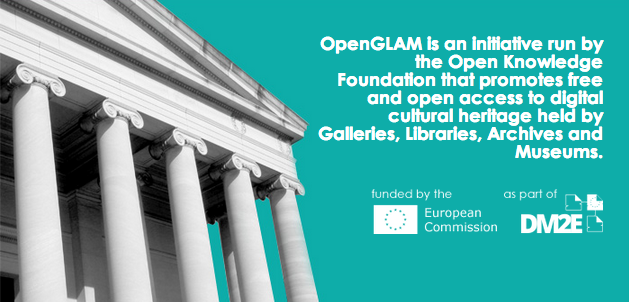
As well as promoting the technologies and research developed as part of DM2E, Workpackage 4 is building a community of open cultural data evangelists who promote the value of open data for cultural heritage and humanities research. This network is called [OpenGLAM](https://openglam.org) and it is led by an active group of volunteers with input from a high-profile Advisory Board of open culture thought leaders (see below).
The goal of the OpenGLAM network is to create a global cultural commons in which gatekeepers to cultural heritage adopt open principles. DM2E tools need open data to function, therefore, it is only in such an environment that DM2E tools will be able to flourish and create the value of scholarship and the wider public that they promise.
###Key links
* [An introduction to open cultural data is available on the DM2E Wiki](http://wiki.dm2e.eu/Main_Page#Introduction_to_Open_Cultural_Data)
* [Visit the OpenGLAM site for news, content and resources on the cultural commons](https://openglam.org)
* [Sign-up to the OpenGLAM mailing list](https://lists.okfn.org/mailman/listinfo/open-glam)
* [Follow the OpenGLAM Twitter account](https://twitter.com/OpenGLAM)
###A sustainable community
In order to guarantee that the communities built as part of DM2E survive and grow beyond the lifetime of the project, the network has been established under the auspices of the Open Knowledge Foundation’s Working Group system which supports a variety of thematic groups committed to promoting open data in different areas. The advantages of this system are:
* It gives the community significant autonomy as these Working Groups are volunteer led
* It allows the community to benefit from the technical and community support the Open Knowledge Foundation offers to all groups (even beyond the lifetime of the project)
* It enables the community to share skills and knowledge with other groups at international open knowledge events such as OKCon and OKFestival
###A high-profile Advisory Board
The OpenGLAM network is guided by an Advisory Board of key open culture thought leaders:
#####Dan Cohen
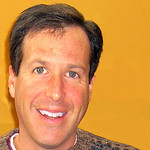
Dan is the Founding Executive Director of the [Digital Public Library of America (DPLA)](http://dp.la), where he works to further the DPLA’s mission to make the cultural and scientific heritage of humanity available, free of charge, to all. Prior to his tenure, Dan was the Director of the Roy Rosenzweig Center for History and New Media at George Mason University. At the Center, Dan oversaw projects ranging from new publishing ventures (PressForward) to online collections (September 11 Digital Archive) to software for scholarship (the popular Zotero research tool). His books include Digital History: A Guide to Gathering, Preserving, and Presenting the Past on the Web (with Roy Rosenzweig) and Equations from God: Pure Mathematics and Victorian Faith.
#####Jill Cousins
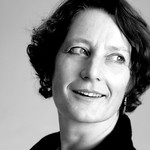
Jill is Executive Director of the [Europeana Foundation](http://www.pro.europeana.eu/about/foundation), responsible for the running and management of Europeana.eu; the flagship portal of the European Union that brings together the content of the Archives, Audio visual collections, Libraries and Museums of Europe. She is also Director of The European Library, a vertical content aggregator for national and research libraries in Europe for the researcher. She has many years experience in web publishing including the commercial publishing world as European Business Development Director of VNU New Media and scholarly publishing with Blackwell Publishing.
#####Michael Edson
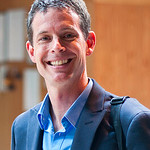
Michael is the Director of Web and New Media Strategy at the [Smithsonian Institution](http://www.si.edu/). In addition to developing the Smithsonian’s first Web and New Media Strategy and its multi-award winning Web and New Media Strategy Wiki, Michael helped create the Smithsonian’s first blog, Eye Level, and the first Alternative Reality Game to take place in a museum, Ghosts of a Chance. Michael is also a driving force behind the cultural commons concept which aims to make hundreds of millions of GLAM resources freely available for users to build upon. Michael is an O’Reilly Foo Camp veteran and was named a Tech Titan 2011: person to watch by Washingtonian magazine.
#####Paul Keller
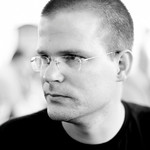
Paul is copyright policy advisor and vice-chair of [Kennisland](http://www.kennisland.nl/en/), an Amsterdam based think-tank focussed on innovation in the knowledge economy. Paul is an expert on open content and data licensing with a special focus on the cultural heritage organizations, the music industry and the creative industries. He is public project lead for Creative Commons in the Netherlands and serves as Collecting Societies Liaison for Creative Commons International, where he has been instrumental in negotiating cooperations between Creative Commons and various collective rights management organisations. Paul is also coordinating the copyright related aspects of Images for the Future, one of the biggest digitization projects for audio-visual heritage in Europe and he is one of the the architects of the copyright licensing framework for Europeana, the flagship portal of the European Union that brings together the content of the Archives, Audio visual collections, Libraries and Museums of Europe.
#####Alexis Rossi
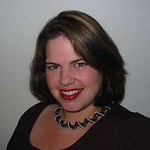
Alexis works at the [Internet Archive](http://archive.org/), an online library that offers permanent access for researchers, historians and the general public to historical collections that exist in digital format. She currently manages all aspects of Internet Archive collections work for movies, audio, TV, and books, and runs the Wayback Machine project. From 2006-2008, Alexis managed the audio and video collections and Open Library, as well as working on the Open Content Alliance, and the Zotero/IA project. Alexis has been working with Internet content since 1996 when she discovered that being picky about words in books was good training for being picky about data on computers. She spent several years managing news content at ClariNet (the first online news aggregator), worked as the Editorial Director at Alexa Internet, and as Product Manager at Mixercast.
#####Merete Sanderhoff

Merete is an art historian whose special field of expertise is open access to digitized cultural heritage. Since 2007, she has worked at the Statens Museum for Kunst (SMK), the National Gallery of Denmark, as researcher and project manager, leading a number of projects providing open access to the museum’s digitized collections, and using digital media to freely share knowledge and resources with fellow institutions as well as users. Among her latest projects is SMK’s contribution to the [Google Art Project](http://www.googleartproject.com/collection/statens-museum-for-kunst/) and the release of a selection of highlights from SMK’s collections for free download under a Creative Commons license. Merete stands behind a pilot initiative that unites 11 Danish art museums in developing a shared mobile platform, inviting users to co-create, share and reuse cultural content. Her publishing list includes a book contesting the canon of art history, several exhibition catalogues, and research papers. She is contributing editor of an upcoming Sharing is Caring anthology due to be published in the winter of 2013-14.
#####Kat Walsh
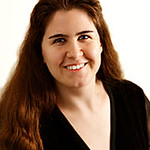
Kat works on issues surrounding the licenses and other projects affecting the legal and policy interests of the [Creative Commons](http://creativecommons.org/) community. Kat’s background is in free culture, free software, and free expression, especially where they involve copyright and patent. She is the 2012-13 chair of the Wikimedia Foundation, and a board member since 2006. Kat was previously a technology policy analyst at the American Library Association.
###Learn more
The OpenGLAM community has a [community website](https://openglam.org) with a host of useful resources for cultural heritage professionals and people wanting to get involved in the promotion of open cultural data. OpenGLAM also runs a [popular Twitter account](https://twitter.com/OpenGLAM) and [mailing list](https://lists.okfn.org/mailman/listinfo/open-glam) through which you can discuss the latest legal and technical issues around open cultural data and find out about events.
